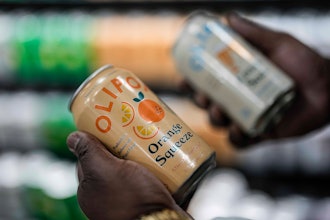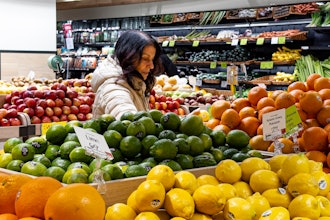
U.S. Agriculture Secretary Sonny Perdue told nervous Midwestern farmers on Wednesday that he's confident that they'll eventually regain the markets they've lost in the Trump administration's trade war with China.
Perdue appeared at Farmfest, an annual trade show near the Minnesota town of Redwood Falls, during a listening session moderated by U.S. House Agriculture Committee Chairman Collin Peterson, a Democrat who represents the area. The discussion started with pleasant talk about bipartisan cooperation and agreement on the need for Congress to approve a renegotiated trade pact with Mexico and Canada, the U.S.-Mexico-Canada Agreement.
Then Gary Wertish, president of the liberal-leaning Minnesota Farmers Union, whose family farms near Renville, raised what he called "the elephant in the room," criticizing President Donald Trump for his "go it alone approach" on China. He pointed to China's announcement Monday that it was halting purchases of U.S. farm products in response to Trump's threat last week of more tariffs on Chinese imports.
"This is causing long-term, devastating damage to not only farmers, but rural communities," Wertish said. He added that farmers "greatly appreciate" the administration's aid program for farmers hurt by the trade war but said the bailout payments will cause farmers long-term political damage. "The taxpayer is not going to stand for this."
Brian Thalmann, a farmer from Plato who is president of the Minnesota Corn Growers Association, disputed recent statements by Trump that farmers are starting to do well again. "Things are going downhill and downhill very quickly," he said.
Joel Schreurs, a farmer from Tyler who sits on the boards of the state and national soybean growers' associations, told Perdue that he didn't expect to see China back down anytime soon. "How are you going to keep the farmers farming?" Schreurs asked. "The exports just aren't going to be there. We've worked a long time to develop these markets, and we're going to lose this market share. It's just not going to come back in a day or two. So how do we make this work?"
Perdue disagreed that the lost markets won't come back.
"The markets are fungible. China is going to buy from where they see the best value." He added that the U.S. government is working to develop alternate markets — including in India, Thailand, Indonesia and Malaysia — and said the soybean industry probably became "too dependent" on China.
"I think we'll gain the market back. But it's got to be a fair, reciprocal and free trade environment, not allowing China to cheat," Perdue said.
The Trump administration has long accused China of unfair trade practices and has imposed escalating rounds of tariffs on Chinese imports to press for concessions. The administration alleges that Beijing steals and forces foreign companies to hand over trade secrets, unfairly subsidizes Chinese companies and engages in cyber-theft of intellectual property. China's countermoves have fallen especially hard on U.S. farmers as it targets agricultural exports. Chinese leaders have said they're ready to talk but will take whatever steps are necessary to protect their rights.
Perdue tried to end the session on a conciliatory note. Rural America in general and farmers in particular remain important parts of Trump's political base despite the impacts of the trade war.
"Obviously there's a lot of stress out there over not only farm prices and trade, but also labor and adding weather on that. ... But it's a great constituency. Farmers are resilient and we want to do everything we can to help them not only survive but to thrive," he said.






















